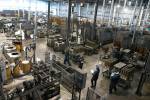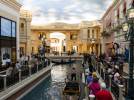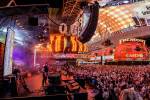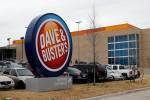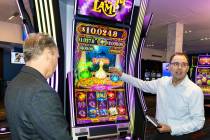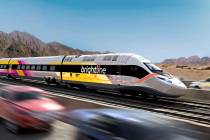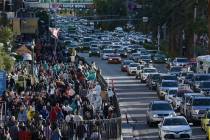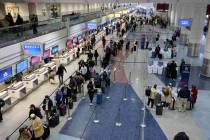Penn National sees trouble on the horizon
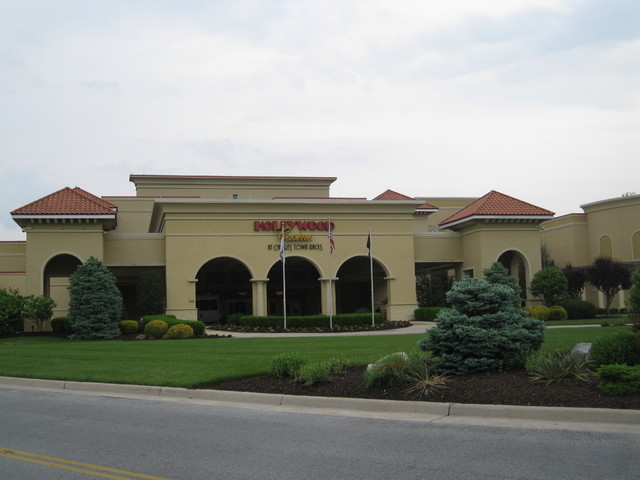

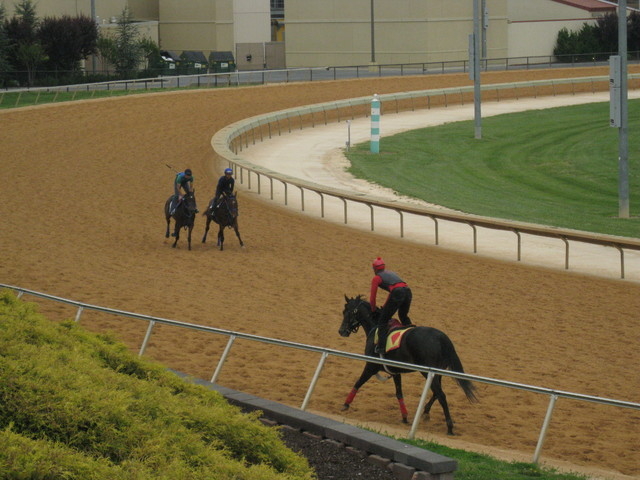

CHARLES TOWN, W.Va.
The nearly empty poker room tells the story.
Penn National Gaming’s Hollywood Casino at Charles Town Races is feeling the brunt of neighboring Maryland’s gaming expansion, even though the state’s two newest casinos have yet to open.
In summer 2013, the 2-year-old Maryland Live!, attached to a 250-store outlet mall in suburban Anne Arundel County, added a 52-table poker room. On any weeknight, every seat in the two-level poker space is occupied. On weekends, the wait for a seat might reach two hours.
A year ago, those players were sitting in the Hollywood’s 25-table poker room.
Hollywood General Manager Al Britton said the bulk of the casino’s poker players drive an hour from Baltimore.
“We knew from our player database that we would lose some poker business,” said Britton, who has overseen the casino for the past nine years for Penn National. “It wasn’t a surprise.”
During his tenure, the Hollywood has undergone four expansions that added casino space, a 1930s Hollywood art deco theme and more restaurants. The site includes the 153-room Inn at Charles Town. A 1,200-seat events center and concert hall opening this month will replace some casino space.
At one point, the property had 5,200 slot machines. When table games were added in July 2010, the number of slots was reduced. Today, Hollywood’s 175,000-square-foot casino has 2,750 slot machines and 100 table games.
The other draw is the property’s year-round thoroughbred 3/4-mile racetrack, home of the West Virginia Breeders’ Classics, the Charles Town Oaks and the $1.5 million Charles Town Classic, the country’s richest thoroughbred race after the Triple Crown and Breeders’ Cup.
The track has a 1,700-seat enclosed grandstand and VIP areas. It offers year-round pari-mutuel wagering with simulcasts of horse and dog races across the country.
Penn National bought the property in 1997, when it was known as Charles Town Races and Slots. It was one of the company’s first purchases outside of its flagship Penn National racecourse.
To protect that investment, Penn National spent millions of dollars on campaigns to get voters to reject gaming expansion in Maryland. Both fell short. Maryland Live! opened in June 2012 and the $925 million MGM National Harbor in Prince George’s County across the Potomac River from Washington, D.C., will open in 2016.
Those properties, along with Caesars Entertainment Corp.’s $442 million Horseshoe Baltimore opening this summer, will likely divert potential customers who have been making the 60- to 90-minute drive from population centers in Maryland and northern Virginia.
They’ll miss the scenery, at least. The Hollywood is a few miles from historical Harpers Ferry, a key battleground during the Civil War, and the route runs through rolling countryside dotted with horse farms and wineries
Britton said most of Hollywood’s 1,700 employees live in West Virginia, but only 4 percent of its business comes from in-state.
West Virginia, which legalized gaming in 1994, is home to five casinos, four attached to racetracks. The four-star Greenbrier Hotel in White Sulphur Springs opened a casino in 2010.
In 2012, West Virginia’s casinos produced $948.8 million in gaming revenue, ranking 12th among the nation’s 23 commercial casino states. Charles Town, however, was the nation’s fourth-largest revenue-producing racetrack casino market in 2012, figures compiled by the Innovation Group for the American Gaming Association show.
But the $537 million in gaming revenue the casino produced in 2013 is expected to decline this year.
During recent quarterly conference calls, Penn National CEO Tim Wilmott predicted Horseshoe Baltimore won’t put as much of a hurt on the Hollywood Charles Town as Maryland Live! did when it added table games last year.
“That said, however, they certainly are going to have depressing effects on business volumes,” Wilmott said in February.
Results from Hollywood Charles Town are included among the five properties that comprise the company’s East-Midwest reporting division, which is Penn’s largest segment in net revenue.
The West Virginia Lottery Commission reports that Charles Town’s table game revenue declined 34 percent in the second half of 2013 after Maryland Live! added table games. Through April, the casino’s revenue is down 14.5 percent compared with a year ago.
Other West Virginia casinos, in the state’s western and southern parts, aren’t affected by Maryland’s new gaming endeavor.
After losing at the ballot box in Maryland, Penn National tried to mitigate its losses.
The company, which opened Maryland’s first casino in 2010 in Perryville, bid for the single Prince George’s license. A proposal to build a $700 million Hollywood hotel-casino at its Rosecroft Racetrack, about 5 miles from National Harbor, was bypassed by the state’s site-selection commission in favor of MGM Resorts’ development.
Penn National is clearly worried about how well Hollywood Charles Town will handle its new competition.
Although horse players are an important customer — especially on big race weekends at the track, or through wagering on the Breeder’s Cup or a Triple Crown race event — they don’t find their way into the casino often enough.
Britton, who has seen all ends of the Hollywood Casino’s business spectrum during his decade at the property, says Penn National will do what it takes to stem any loss of customers to Maryland.
Otherwise, the poker tables won’t be the casino’s only empty space.
Howard Stutz’s Inside Gaming column appears Wednesdays and Sundays. He can be reached at hstutz@reviewjournal.com or 702-477-3871. Follow on Twitter: @howardstutz.




